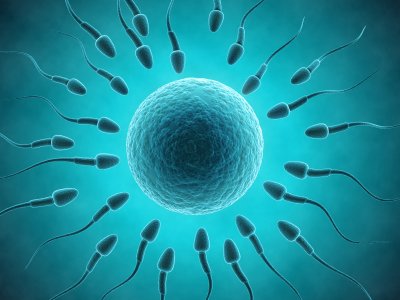What is In Vitro Fertilization (IVF)?
In vitro fertilization (IVF) is a fertility treatment involving the extraction of a woman’s eggs and a man’s sperm outside the body, followed by the fertilization of the eggs in a laboratory setting. The resulting embryos are cultured for a specific period and then transferred back into the uterus.
This treatment process begins with the use of ovulation-stimulating medications to mature the woman’s eggs, typically starting on the 2nd or 3rd day of the menstrual cycle. During the initial examination, the uterus and ovaries are evaluated using ultrasound, and hormone levels are checked through blood tests (Estradiol, LH, and Progesterone).
Based on the examination and blood test results, a suitable dose and protocol are selected, and ovulatory stimulation therapy is initiated. The process of stimulating and maturing the eggs usually takes about 7-10 days, with regular monitoring through check-up appointments every 2-3 days. Once the eggs have reached an adequate size, a trigger shot called the egg maturation injection is administered to induce final maturation. The eggs are collected 35-36 hours after this injection.
The egg retrieval process is a 15-30 minute procedure performed under mild sedation or anesthesia. Using thin needles passed through a guide applicator attached to a vaginal ultrasound probe, the follicles (small fluid-filled sacs containing eggs) are aspirated, retrieving eggs from the ovaries.
Collected eggs are then transferred to embryologists in the laboratory. After an initial evaluation under a microscope, mature eggs are selected, and fertilization is achieved by microinjection (ICSI) with sperm obtained from the male partner. In cases where there are sufficient sperm and eggs, a partially or entirely traditional IVF procedure may also be performed. However, ICSI, which generally yields higher fertilization rates, is preferred in many clinics today.
The day after the egg retrieval, fertilized eggs undergo continuous monitoring for their development. Selected embryos are ready for transfer when they reach the blastocyst stage, preferably by the fifth day of development. The embryo transfer is a painless procedure performed on the examination table and typically takes 5-10 minutes. Both the physician and the patient can visualize the placement of embryos through ultrasound.
How Long Does IVF Take?
When the treatment begins on the 2nd or 3rd day of the menstrual cycle, the overall duration of IVF is usually completed within 15-20 days. The stages of in vitro fertilization include:
- Stimulation of Eggs (7-12 days): The process of stimulating eggs using ovulation-stimulating medications.
- Trigger Shot – Egg Retrieval Process (1.5 days / 35-36 hours): The injection to induce final maturation, followed by the retrieval of eggs.
- Monitoring the Development of Fertilized Eggs (2-5 days): Continuous monitoring of the development of fertilized eggs in the incubator.
- Embryo Transfer (5-10 minutes): A painless procedure performed on the examination table. A pregnancy test is conducted 12 days after the transfer or 14 days after the egg retrieval process.
The IVF treatment concludes with the determination of whether pregnancy has been achieved or not.

